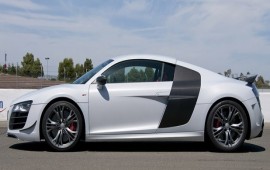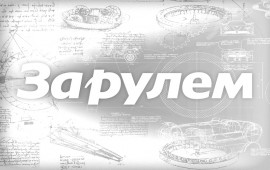Alvis


Engineering Company Ltd and Alvis Car was a British manufacturing company in Coventry, England. From 1919-1967 in addition to autos created for the civilian market, the company also created racing aircraft engines, cars, armoured cars and other armoured fighting vehicles.
After becoming a subsidiary of Rover in 1965, auto production was ended but armoured vehicle production continued. Alvis became part of then in 1982 and British Leyland was sold to United Scientific Holdings which renamed itself to Alvis plc
The first business, T.G. John and Company Ltd., was set up in 1919 by Thomas George John (1880 - 1946). Its first products were motorscooters, carburetors and stationary engines. Following complaints from the Avro aircraft company whose emblem bore similarities to the first winged green triangle, the more recognizable inverted red triangle incorporating the word "Alvis" evolved.
The source of the name Alvis has become the issue of a lot of speculation through recent years. De Freville nevertheless vigorously rejected all of those hypotheses. In 1921, he expressly said that the name had no significance whatsoever, and was selected just because it might be easily pronounced in any language. He reaffirmed this place within the early 1960s, saying that any other explanations for the origin of the title were just coincidental.
Where from 1922 to 1923 they also created the Buckingham auto, creation was relocated to Holyhead Road in Coventry. In 1922 George Thomas SmithClarke (1884 - 1960) left his career as assistant works manager at Daimler and joined Alvis as Chief Technologist . Manager and Works. This venture lasted for almost 28 years and was responsible for creating some of the very successful products in the organization's history. SmithClarke left in 1950, and Dunn assumed SmithClarke's position as Chief Engineer, staying in that position until 1959.
De Freville's first engine layout was a fourcylinder engine with aluminium pistons and pressure lubrication, which was uncommon for the time. It was an immediate success and established the standing for exceptional functionality and quality craftsmanship for which the business was to become renowned. The initial 10/30 sidevalve engine was enhanced, becoming by 1923 the overhead valve Alvis 12/50, an extremely successful sports car that was created until 1932.
These cars were refined and full of technical innovations. Separate front suspension and the world's first allsynchromesh gearbox came in 1933 followed by servo assisted brakes.
As with many upmarket engineering organizations of the time, Alvis didn't create their own coachwork, relying instead on the numerous accessible coachbuilders in the Midlands region, such as Carbodies, Charlesworth Bodies, Cross and Ellis, Duncan Industries (Engineers) Ltd, E. Bertelli Ltd, Grose, Gurney Nutting, Hooper, Lancefield Coachworks, Martin Walter Ltd, Mayfair, Mulliners, Tickford, Vanden Plas, Weymann Fabric Bodies, and William Arnold Ltd. Several automobiles also live with rather exotic oneoff bodywork from other designers for example Holbrook, an U.S. coachbuilder.
In 1936 the business name was shortened to Alvis Ltd, and aircraft engine and armoured vehicle sections were added for the business by the start of WWII. SmithClarke designed several versions during the 30's and '40s, including the sixcylinder Speed 20, the Speed 25, along with the Alvis 4.3 Litre model.
Although paradoxically the armaments factory suffered little damage, the car factory was badly damaged on November 14, 1940 as an effect of several bombing raids on Coventry by the German Luftwaffe. Much precious cutting supplies and other products was lost and auto production was suspended for the length of the war, only resuming during the latter part of 1946. Despite this, war production was carried out by Alvis on equipment. of RollsRoyce Limited) and other aircraft aircraft engines (as subcontractor.
Auto production resumed with a version, the TA 14, centered on the prewar 12 / 70. Not only had their car factory was lost by Alvis but a lot of the prewar coachbuilders had not survived either and those who had were immediately obtained by other makers. Actually, the post war history of Alvis is dominated by the search for moderately priced and dependable coachwork.
SmithClarke himself retired in 1950 and as chief engineer Dunn took over. In 1950 a new chassis and sixcylinder 3 Litre engine was declared and this tremendously successful engine became the base of all Alvis models until production ended in 1967. Saloon bodies for the TA 21, because the brand new version was called, again came from Mulliners of Birmingham because they had for the TA 14, with Tickford creating the dropheads. However, with the first of those becoming a part of the second and also Standard Triumph being obtained by Aston Martin Lagonda, it was clear by 1954 that new arrangements would need to be made. With this time a number of the very original and amazing models to the 3 Litre chassis were being created by master coachbuilder Carrosserie Herman Graber of Switzerland and really these oneoff constructed cars are highly-sought after now. With a license set up, from 1955 all Alvis bodies became according to Graber designs. Early examples for example the TC108/G were assembled by Willowbrook Limited of Loughborough, but at this type of high cost that not many were created. The TD 21, these vehicles and its later versions, the TE 21 and eventually the TF 21 are nicely constructed, appealing and quick vehicles. Nevertheless it was obvious from the that with a cost of almost double that of the Jaguar, the ending couldn't be remote.
From 1952 to 1955 Alec Issigonis, the originator of the Mini, worked for Alvis and created a fresh version with a V8 engine which proved too costly to create.
1967 Alvis TF 21 Cabriolet
With just 109 sold and with political problems aplenty in britain vehicle manufacturing company at that time, production finally ended in 1967.
In 1968, a management buy-out of the automobile procedures was finalised and all of the Alvis automobile design ideas, client records, inventory of components and remaining workers were transferred to Red Triangle.
The trucks were afterwards branded as Alvis-Unipower. In 1998, Alvis plc acquired the armoured car company of GKN plc, and also the chief UK manufacturing operation was transferred from Coventry to Telford. BAE Systems concluded the utilization of the Alvis distinguishing reddish triangle trademark.
Last Year, Red Triangle[disambiguation needed] negotiated the legal transfer of the Alvis vehicle trademarks. The next year, the firm announced the 4.3 Litre Short Chassis tourer would once more be accessible. All Alvis' records stay intact in the firm's Kenilworth headquarters plus a substantial stock of interval components. Among the guys to have done the last Alvis car created in 1967 continues to be kept by Red Triangle in an exercise capability. Constructed for the initial designs, the fresh car is named the "Continuation String", to represent the 73year gap in its creation between 1937 and 2010. It differs only in more detail in the prewar examples: for emissions, the engine is regulated through an electronic fuel-injection system with electronic ignition, brakes are hydraulic instead of cable, the steering column collapsible and also the rear light organization reconfigured to conform to contemporary requirements.
Read More ▼
-
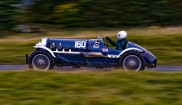 Alvis Sports Special
Alvis Sports Special
-
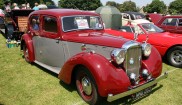 Alvis TA14 Sports Special Open 2 Seater
Alvis TA14 Sports Special Open 2 Seater
-
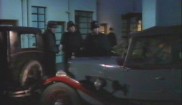 Alvis Unknown
Alvis Unknown
-
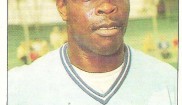 Alvis Seed 20 43
Alvis Seed 20 43
-
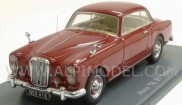 Alvis TE21 saloon
Alvis TE21 saloon
-
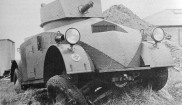 Alvis Armored security truck
Alvis Armored security truck
-
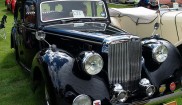 Alvis TA 14 Sports Special Open 2 Seater
Alvis TA 14 Sports Special Open 2 Seater
-
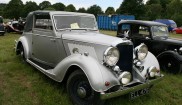 Alvis Drophead Coupe
Alvis Drophead Coupe
-
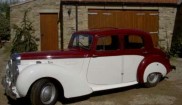 Alvis TA21 saloon
Alvis TA21 saloon
-
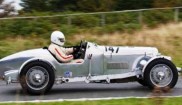 Alvis 1270
Alvis 1270
-
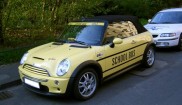 Alvis FD 1275 FWD
Alvis FD 1275 FWD
-
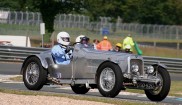 Alvis 1270 Special Sports
Alvis 1270 Special Sports
-
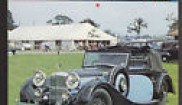 Alvis Speed 20 Chareksworth
Alvis Speed 20 Chareksworth
-
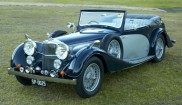 Alvis Speed 25
Alvis Speed 25
-
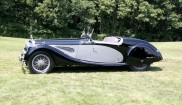 Alvis Speed 25 Sports
Alvis Speed 25 Sports
-
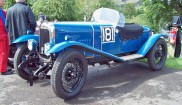 Alvis 1250 TJ Sports
Alvis 1250 TJ Sports
-
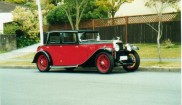 Alvis Fire-Fly
Alvis Fire-Fly
-
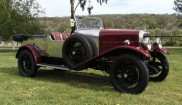 Alvis Silver Eagle
Alvis Silver Eagle
-
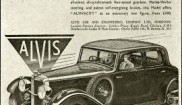 Alvis Firebird
Alvis Firebird
-
 Alvis 1270 Special
Alvis 1270 Special
-
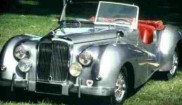 Alvis TB 21 Roadster
Alvis TB 21 Roadster
-
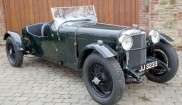 Alvis Speed 20SA
Alvis Speed 20SA
-
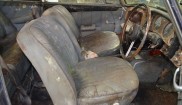 Alvis TF21 coupe
Alvis TF21 coupe
-
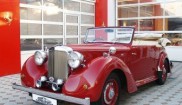 Alvis TA 14 cabriolet
Alvis TA 14 cabriolet
-
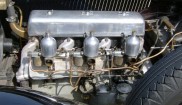 Alvis Speed 20SB Saloon
Alvis Speed 20SB Saloon
-
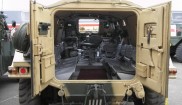 Alvis Saracen APC
Alvis Saracen APC
-
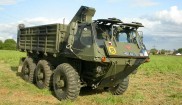 Alvis Stalwart
Alvis Stalwart


Go Motors Blog
Top 10 Best Chevrolet Models of All Time
9 Unique Ways to Customize Your Car
How to Find the Best Tow Truck Companies
Car Repair at Home: 4 Easy DIY Fixes That Anyone Can Do
The Most Valuable Parts on a Car to Scrap
How to Diagnose Severe Car Problems (Even When You Don’t Know Anything About Cars)
5 Tips for Finding a Good Mechanic You Can Trust
Shady Car Mechanic Tricks You’ve Never Known Before
6 Effective Maintenance Tips for Car Headlights
View All Recent Posts
New Photo Galleries
LATEST NEWS
more news
LATEST CAR REVIEWS
more automotive reviews
